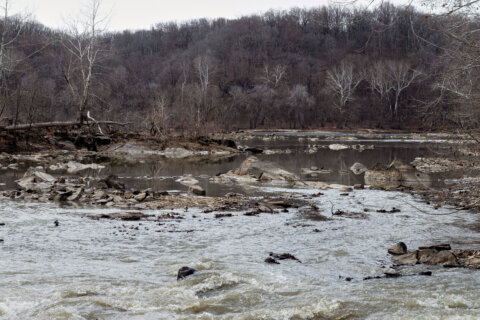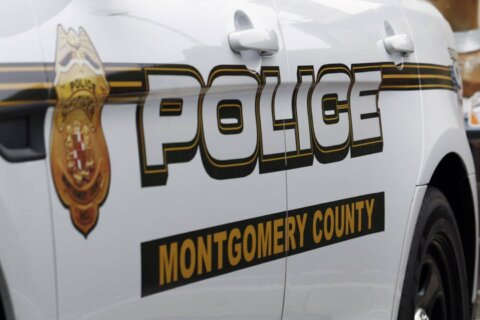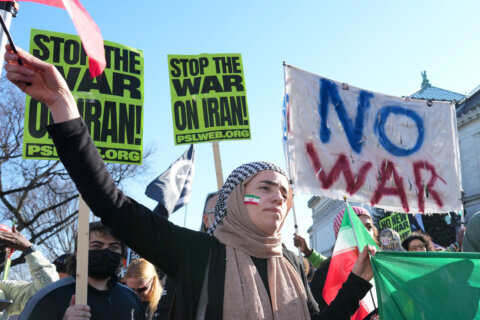With coronavirus vaccinations underway and a recent decrease in COVID-19 cases, fans of live music, eating out at restaurants and going to watch a movie or play in a theater are finally able to entertain the notion of returning to leisure activities that have been largely shuttered since March 2020.
While members of the public have been champing at the bit to resume “an evening out,” their cabin fever is dwarfed by the financial devastation suffered by restaurants, bars, music venues and theaters — many which have closed permanently.
That raises the question: Can music venues, restaurants and theaters require proof of COVID-19 vaccination as a requirement for admission to maximize the chances of businesses remaining open?
Yes, they can, according to D.C.-area attorney Mark Dycio, who represents entertainment and other hospitality industry clients.
Requiring a vaccine for admission is different from excluding a person because of who they are, according to Dycio.
“The bottom line is, unless you’re a protected class, under federal law, restaurants can use any COVID protocols they want to keep customers and employees safe,” Dycio said. “While a restaurant or music venue can’t refuse service based on race, color, religion, sex or national origin, those restrictions don’t apply to businesses enforcing their own COVID protocols.”
But will venues, restaurants and theaters choose to require proof of vaccination, when they are allowed to entertain larger groups of people?
“I don’t believe, from a practical standpoint, given the economic disaster over the last 12 months, that anyone is going to be turning away business,” Dycio said. “These facilities can allow or disallow people as they choose, but given the current climate, I’m not certain they’re going to be turning away business at the gate.”
While the number of customers in restaurants and venues has been limited by local government restrictions on the size of gatherings, at some point, larger crowds will be allowed.
During a recent pilot program for music venues in the District, the number of people in the club was limited to 50, and seated fans had to be at least 30 feet from band.
With larger crowds, rooms will be reconfigured.
“Then you’re talking ‘how do you get these people closer, how do you move the tables closer,'” Dycio said.
“There is some discussion among clients of mine in the District, for example, that are talking about requesting people’s vaccination cards,” he said. “You don’t want to be conspicuous by being the only one that does it, so I think at some point the industry as a whole will come together with a plan.”
The National Independent Venue Association, which spearheaded the #SaveOurStages Act that will allow shuttered venues to seek $15 billion in grants, has not taken a position on the option.
Some music fans or diners may choose to only attend businesses that require vaccinations.
“I think the fact that vaccinations are available, and that they’re shooting for an 85% compliance rate of vaccination, there will be some sense of security for people gathering in larger crowds that they’ll be safe,” said Dycio.
A different kind of night out
In a region with dozens of destination neighborhoods, bringing larger entertainment audiences back can’t be understated, according to Dycio, as public health and government entities work toward herd immunity for the coronavirus.
“You’re talking about thousands of people either dining ahead of time, or going out after the show for drinks,” Dycio said. “So, it’s not only about the theater or the music venue itself — it’s about the surrounding businesses.”
During the pandemic, Dycio said many restaurants and venues have had to look for alternative ways to serve customers.
“Takeout orders have increased, food services like Uber Eats and Grubhub are doing 10 times the business they were, so the question is: Has the American public’s mentality about dining out changed?” Dycio said.
Somewhere down the road, when it comes to concerts and a nightclub filled with fans watching and dancing to a live band, “There’s always going to be an appetite for it,” Dycio said. “I think there’s always going to be a demographic that can’t get enough of a live show.”
Yet music fans may alter the way they attend a show.
“A guy who would normally take a family of five or six to a Metallica concert may now get three or four families together and get a suite, because the mentality is a safer, more confined environment with people you know, versus the ones you don’t know.”
Initially, as larger crowd sizes become possible, Dycio foresees venues seating fans in every other seat, while requiring distancing and mask wearing.
As many members of the public yearn for a “night out,” Dycio said some customers may choose to have food delivered and watch a streamed movie, which is a troubling possibility for businesses.
“It doesn’t give you that sort of full theater experience, with IMAX speakers and sounds, and just the notion that you’re going out,” Dycio said. “But, how do you make money as a movie theater, putting people in every third seat?”
- Sign up for WTOP alerts
- Latest coronavirus test results in DC, Maryland and Virginia
- Coronavirus vaccine FAQ: What you need to know
- Latest vaccination numbers in DC, Maryland and Virginia
- US coronavirus death toll approaches milestone of 500,000
- Montgomery Co. seniors hit the hardest by COVID-19 receive vaccinations
Looking for more information? D.C., Maryland and Virginia are each releasing more data every day. Visit their official sites here: Virginia | Maryland | D.C.








